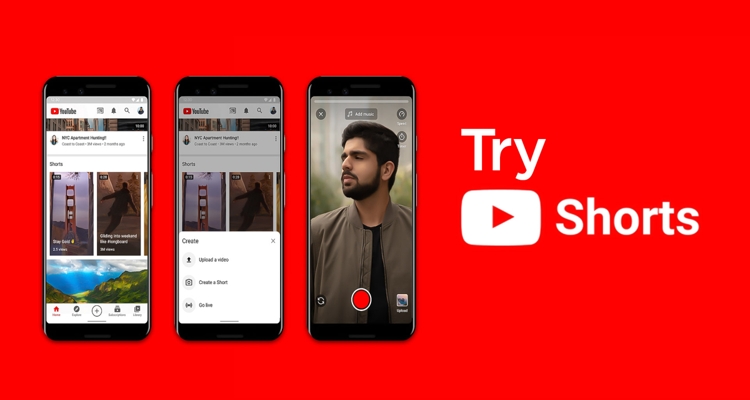Photo Credit: YouTube
YouTube Shorts is officially preparing to implement a new revenue sharing model – a move that could draw creators away from TikTok, which continues to grapple with bans and far-reaching lawsuits in the U.S.
Google’s short-form video-sharing platform just recently revealed its plans to cut creators in on advertising revenue. Scheduled to kick off on February 1st, the outlined program will replace the YouTube Shorts Fund (which was announced in May of 2021) and compensate creators based upon their share of pooled revenue from adverts shown between clips.
YouTube described the model’s allocation and payout specifics in relative detail, also emphasizing that it will use the pooled ad income “to both reward creators and help cover [the] costs of music licensing.”
Building upon the latter, it appears that uploaders will be compensated for eligible Shorts at the same rate regardless of whether their clips feature music. More broadly, it stands to reason that the revenue sharing development could draw creators away from TikTok (or at least to YouTube Shorts), as previously mentioned.
As part of Alphabet’s Q3 2022 earnings report, Google execs made clear their goal of “closing the monetization gap between Shorts and long-form content” – likewise disclosing that “Shorts are being watched by 1.5 billion-plus logged-in users every month.”
Meanwhile, Shorts creators are set to “keep 45% of their allocated revenue,” according to the formal announcement concerning the model, as YouTube’s overall advert income remains sizable despite a small decrease in Q3. Analyses have explored the substantial earning potential for creators on Shorts, especially when compared to the paltry payments offered by TikTok.
Compounding these competitive difficulties for ByteDance-owned TikTok is the initially noted crackdown on the app over its alleged privacy shortcomings and threat to children and teens.
FCC commissioners, the FBI, and numerous lawmakers have expressed concerns about the continued use of TikTok, which was late last month banned on congressional devices. At the state level, governors from New Jersey, Ohio, Oklahoma, and Delaware, to name some, have prohibited the app’s use on government devices, citing security and data concerns.
The corresponding orders have since trickled down to multiple universities, where faculty aren’t allowed to use TikTok and the app is now inaccessible via on-campus Wi-Fi networks.
Notwithstanding the described obstacles (and several others, the possibility of a forced sale among them), TikTok has attempted to hit the ground running in 2023, including by partnering with Vevo and booking a Calvin Harris virtual-reality concert.

